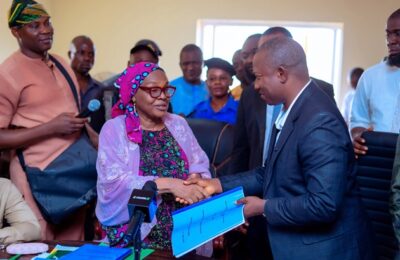By Musa Bakare.
In the face of mounting challenges and relentless criticism from opposition elements, it is both just and patriotic for Nigerians, irrespective of tribe or tongue, to objectively acknowledge and appreciate the significant achievements of President Bola Ahmed Tinubu’s administration within just two years and two months.
Despite the clamor from opposition coalitionists, there is perhaps no Nigerian head of government since 1960 that has sincerely and boldly attempted to address the country’s deep-seated problems and reset the trajectory of its political, economic, and social growth like Asiwaju Bola Ahmed Tinubu.
Nigerians, known for their deep discernment and critical judgment, are beginning to clearly see the transformative impact of President Tinubu’s leadership across all sectors, not limited to the 36 states of the federation, including the Federal Capital Territory.
His fiscal and governance reforms have not only ensured the availability of more funds to state governments but have also sparked unprecedented sub-national development and structural transformation. These are not mere campaign promises; they are visibly tangible results reshaping the nation’s development trajectory.
One of the most defining hallmarks of President Tinubu’s leadership, perhaps the very aspect unsettling the opposition, is his unwavering commitment to reviving the Nigerian economy through bold and decisive reforms. The removal of fuel subsidy, long exploited by cabals and cartels, has been acclaimed worldwide as a courageous move that ended decades of abuse and corruption. The billions of naira freed from this initiative are now being redirected to vital sectors such as infrastructure, healthcare, education, and social welfare. The long-term economic benefits of these reforms are substantial and sustainable.
The administration has also introduced exchange rate unification and naira stabilization measures, which have helped restore confidence in the financial system and created a more transparent framework for investors.
Through various business-friendly reforms, including streamlined company registration and tax incentives, the administration has improved Nigeria’s investment climate, which is already attracting foreign direct investment and boosting job creation, positively impacting the populace.
President Tinubu’s administration has advanced infrastructure development from mere rhetoric to visible action. Massive investments in roads and rail projects are connecting regions, reducing logistics costs, and stimulating commerce nationwide.
In the power sector, ongoing reforms aim to address the long-standing power supply crisis that has hindered Nigeria’s industrial and technological growth for decades. Only those who wish to see Nigeria continue to struggle would refuse to see and acknowledge these laudable efforts.
Security remains a cornerstone of this administration. The government has deepened its collaboration with military and paramilitary agencies to tackle insurgency, banditry, and kidnapping.
It has also embraced community policing, encouraging local involvement in intelligence gathering and crime prevention. These initiatives are already beginning to yield positive results, particularly in regions previously plagued by instability.
In the social sector, the government is making substantial investments in primary healthcare, upgrading medical facilities, and improving access to quality services. The Tinubu administration has launched a comprehensive revitalization plan in education, encompassing infrastructure upgrades, curriculum reforms, and teacher training.
The introduction of student loans and a monthly stipend for technical students demonstrates a serious commitment to youth empowerment and skills development.
After years of disruptions caused by incessant strikes, President Tinubu’s intervention has restored stability to the academic calendar, providing relief to students, parents, and academic institutions across the nation.
The Tinubu administration is also enhancing governance through transparent budgeting and e-governance tools, ensuring better monitoring of public funds and reducing wasteful spending.
By supporting the independence of anti-corruption agencies and democratic institutions, the administration is laying a solid foundation for accountability, integrity, and trust in public service.
While the journey has not been easy, the vision guiding President Tinubu’s administration is clear: economic freedom, national security, and inclusive development.
These reforms and people-focused policies illustrate that Nigeria is firmly on the path to greatness; such accomplishments should be acknowledged.
Rather than dwelling on pessimism and outright fabrication of untrue spectacles, opposition coalitionists must refocus their energy on the undeniable achievements of President Tinubu’s administration and give credit where it is due.
Nigeria is a nation blessed with a deeply discerning and intelligent population, observant of who truly stands with them and noting their real friends.
As we look ahead to 2031 and beyond, Nigerians should recognize the progress brought by President Bola Ahmed Tinubu’s administration, protect it, and build on it together, even as they prepare to renew his mandate come 2027.
– Musa Asiru Bakare
Member, All Progressives Congress (APC); Member, Tinubu Support Group (TSG); Political Analyst
Lokoja, Kogi State.




